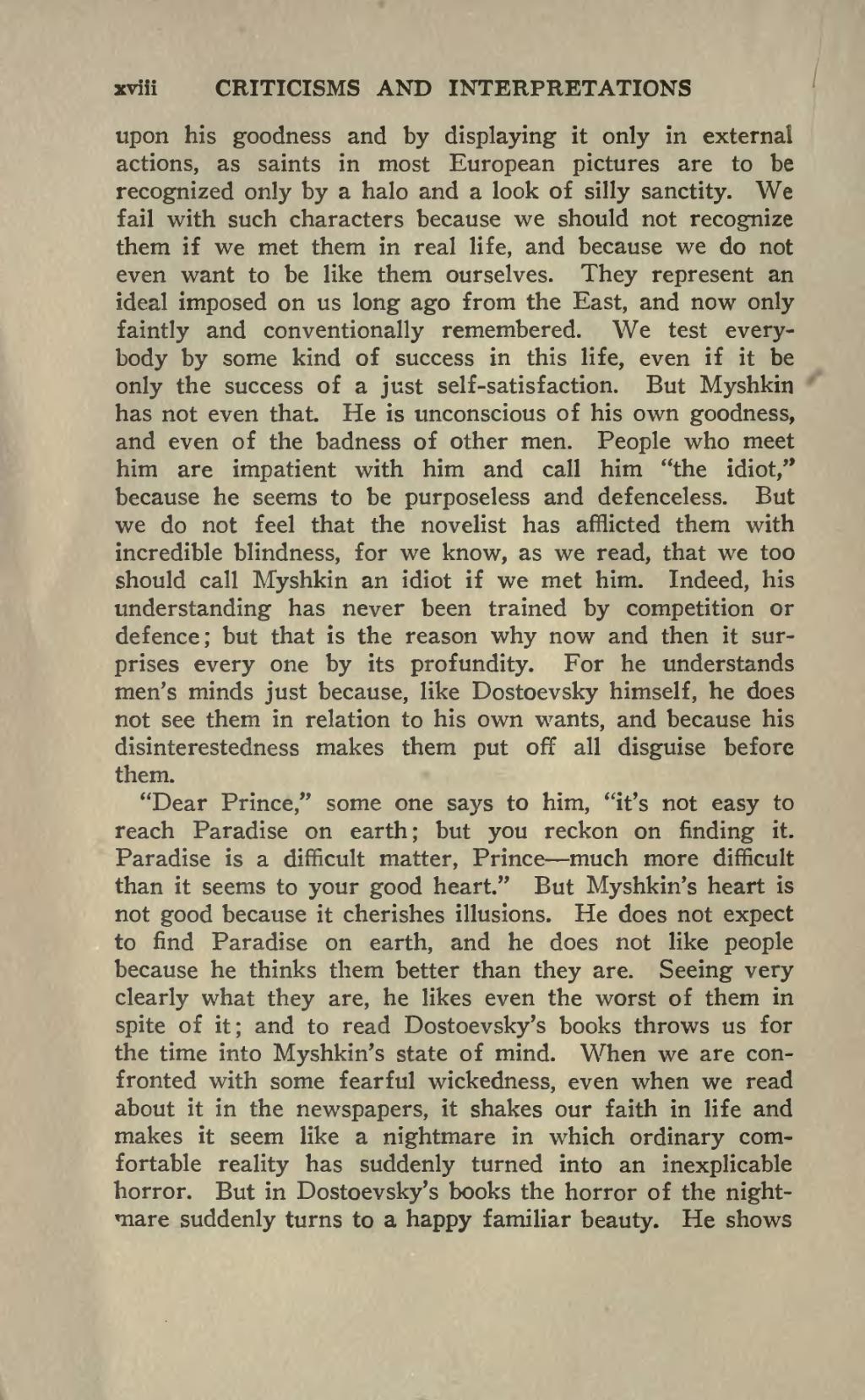upon his goodness and by displaying it only in external actions, as saints in most European pictures are to be recognized only by a halo and a look of silly sanctity. We fail with such characters because we should not recognize them if we met them in real life, and because we do not even want to be like them ourselves. They represent an ideal imposed on us long ago from the East, and now only faintly and conventionally remembered. We test everybody by some kind of success in this life, even if it be only the success of a just self-satisfaction. But Myshkin has not even that. He is unconscious of his own goodness, and even of the badness of other men. People who meet him are impatient with him and call him "the idiot," because he seems to be purposeless and defenceless. But we do not feel that the novelist has afflicted them with incredible blindness, for we know, as we read, that we too should call Myshkin an idiot if we met him. Indeed, his understanding has never been trained by competition or defence; but that is the reason why now and then it surprises every one by its profundity. For he understands men's minds just because, like Dostoevsky himself, he does not see them in relation to his own wants, and because his disinterestedness makes them put off all disguise before them.
"Dear Prince," some one says to him, "it's not easy to reach Paradise on earth; but you reckon on finding it. Paradise is a difficult matter, Prince—much more difficult than it seems to your good heart." But Myshkin's heart is not good because it cherishes illusions. He does not expect to find Paradise on earth, and he does not like people because he thinks them better than they are. Seeing very clearly what they are, he likes even the worst of them in spite of it; and to read Dostoevsky's books throws us for the time into Myshkin's state of mind. When we are confronted with some fearful wickedness, even when we read about it in the newspapers, it shakes our faith in life and makes it seem like a nightmare in which ordinary comfortable reality has suddenly turned into an inexplicable horror. But in Dostoevsky's books the horror of the nightmare suddenly turns to a happy familiar beauty. He shows
